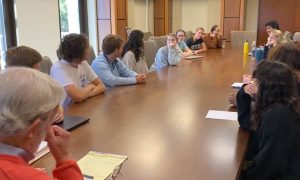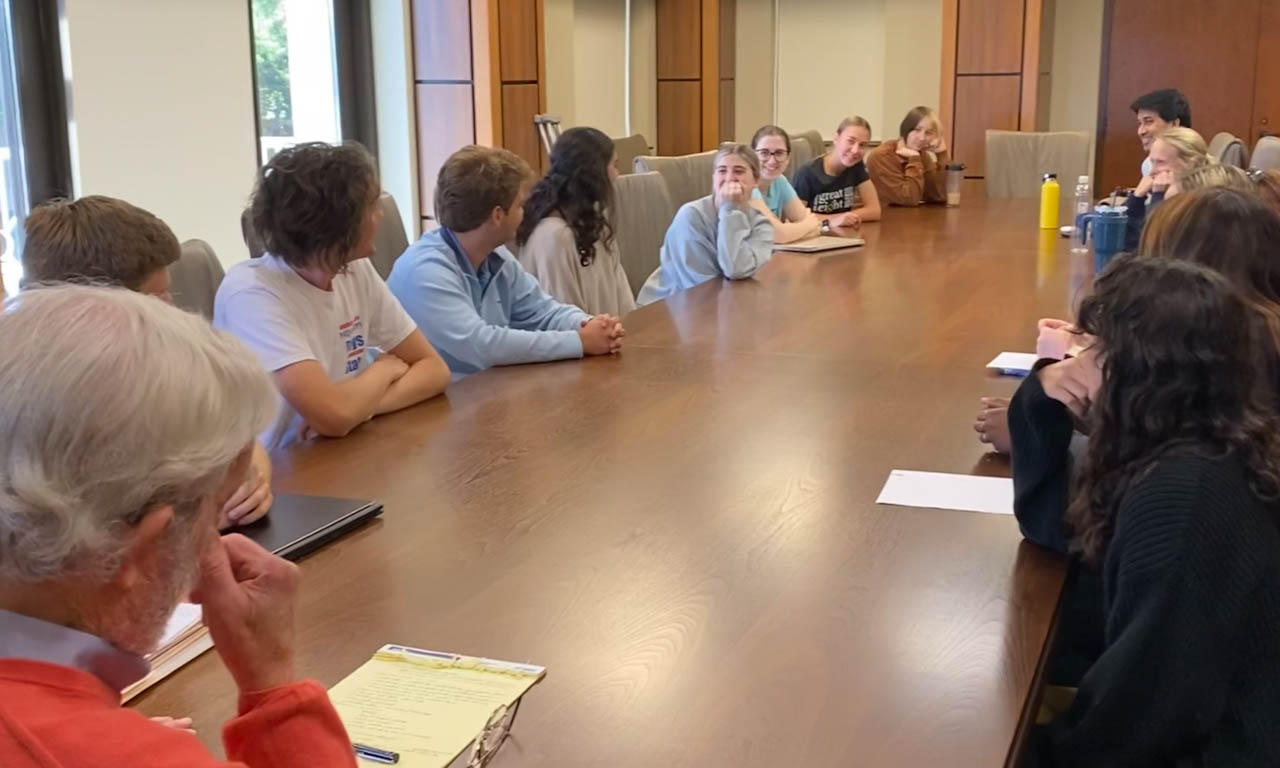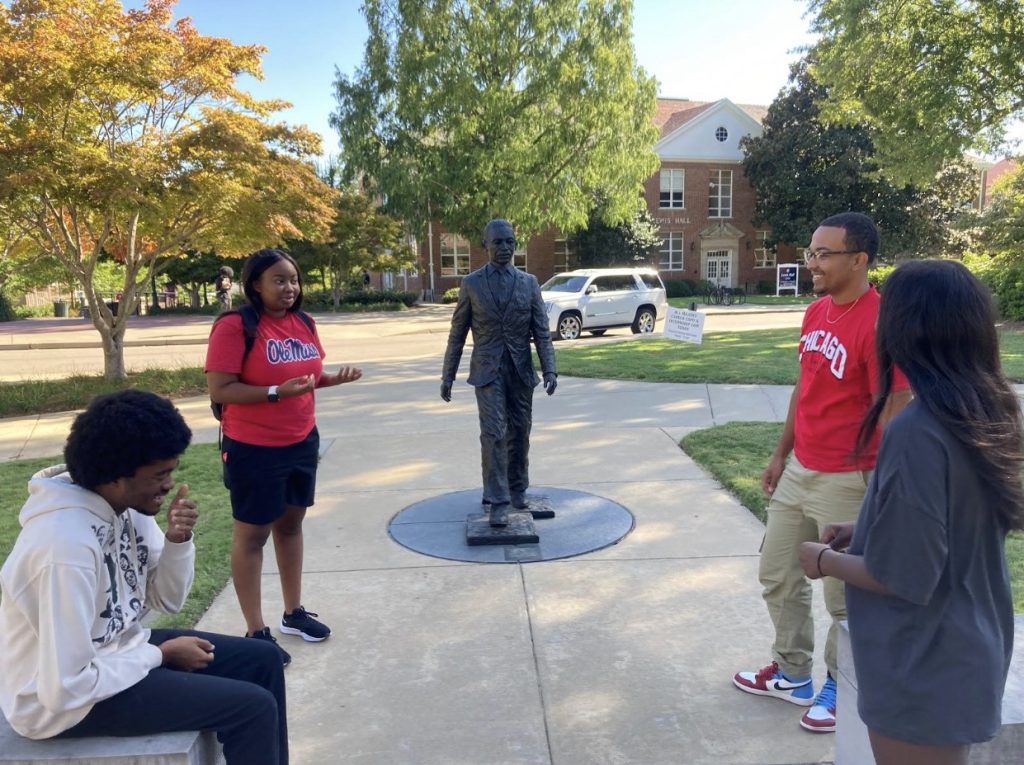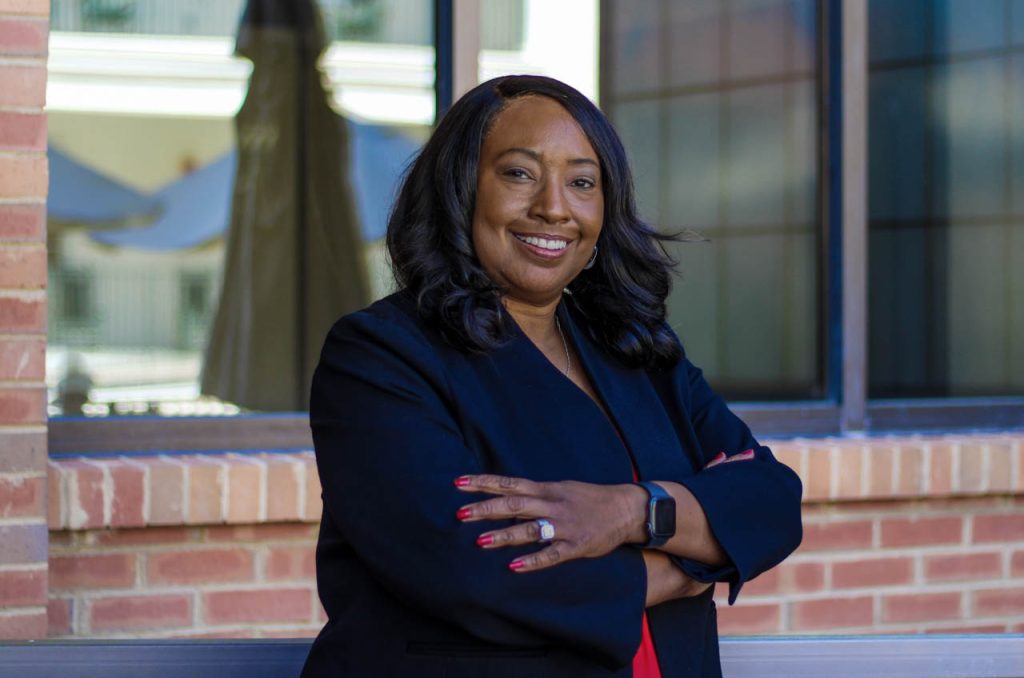In honor of the 60th anniversary of integration, the Sally McDonnell Barksdale Honors College offered a special honors class — “The University and the State of Mississippi Sixty Years after James Meredith,” — reflecting on the university’s integration in 1962 and the progress made since that time.
Taught by Curtis Wilkie, a longtime journalist who was a senior at Ole Miss in 1962, the course explores complex and controversial themes to determine how the state and its flagship institution of higher learning have evolved.
Lila Osman, senior public policy leadership major and Associated Student Body President, said that the course’s objective is to help students “understand where Mississippi is, where we are going and what we can do about it.”
“When I saw this course announced, I dropped another class I had at the same time to take this course. Personally, I thought this course was very relevant for me to take with my involvement on campus and also my interests in history and politics,” Osman said on what drew her to register for the class. “Growing up in Mississippi, I wanted to hear the thoughts of others about where they thought our state was at today.”
Conversations in the course often transcend historical events and shift to focus on current social issues in Mississippi, including the Jackson water crisis.
Leila De Gruy, a senior international studies major, elected to take this course to expand her frame of reference for life in her home state.
“Being from Jackson and going to college in Oxford, I have experienced both big city and small-town Mississippi, so I really wanted to see how my experiences translated to the experiences of others from inside and outside of the state,” she said.
De Gruy believes she has learned about a plethora of new issues in different parts of the state, but the conversations among students in the course give her hope for solutions.
“I have often felt a lot of apathy from other Mississippians regarding ongoing issues in the capital, but in talking to everyone, it is easier to feel more hopeful about peoples’ willingness to help Jacksonians concerning issues like the water crisis,” De Gruy said.
State politics is another popular topic in the course, ranging from policies in 1962 that allowed the legislature to take control of the university to modern topics like the state’s refusal to expand Medicaid and the scandal involving millions of misspent government dollars intended for welfare programs.
Freshman public policy leadership major Hayden Walker says because of the discussions in this course, he looks forward to the day when people of his generation are in charge.
He also maintains that history plays a key role in framing how students approach these modern issues.
“Any increase in the understanding of our campus and state history helps develop the culture because I feel like we can’t know ourselves if we don’t know our past. That’s why I think the course is really beneficial” Walker said. “Since moving to Oxford in 2018, I haven’t had the opportunity to talk to many individuals who witnessed the events of 1962, and so to get that primary source is very valuable and makes it feel a lot closer to reality than just reading about it.”

The students believe that transparency and open-mindedness are key elements in making this course successful.
“Having the ability to talk openly and freely about the problems we see and how those could or could not change is the first step in making a change,” De Gruy said.
This open dialogue and exploration of issues can create a change in campus culture when students remain open to new ideas.
“It allows us as students to delve into the culture of our campus and to understand it better,” Osman said.
When asked about what makes the course dialogue unique and meaningful, Walker attributed it to the sense of community within the class itself.
“I think something special about the course is that it’s across all grade levels, so I as a freshman am sitting next to the ASB president (Lila Osman), who is a senior, and we are discussing the same thing. I think that’s super special,” Walker said. “I just enjoy hearing other people’s opinions who are both from Mississippi and from outside of the state.”
Despite this course’s nature of exploring and discussing past and present issues at the university, all three students agree that Ole Miss is a positive place to be, and they maintain a hopeful tone for future progress.
“There is more good here than bad, and it is on us to shine lights in the right places and make changes where things need to change,” De Gruy said.
















